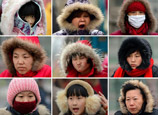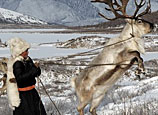
PHNOM PENH, Nov. 20 (Xinhua) -- The 7th East Asia Summit (EAS) kicked off here Tuesday, bringing together leaders from 10 ASEAN member states and eight dialogue partners as well as heads of some international financial institutions.
The annual forum, which comprises plenary session and retreat session, is expected to highlight six priority areas for cooperation, including energy and environment, education, finance, global health issues and communicable diseases, disaster management and ASEAN connectivity.
Cambodian Prime Minister Hun Sen said in his opening address that the summit took place at a time when the world is still facing economic uncertainties and other challenges such as soaring oil prices, food security, natural disaster and cross-border crimes.
"These obstacles cannot be tackled in regional level, but need closer cooperation, comprehensive and deep approaches in both regional and global level," Hun Sen said, adding that in this context, constant cooperation and deeper integration among participating countries in the EAS would be the best way to address these problems.
A Chairman's Statement will be adopted as the outcome of the summit.
It is the second time the United States and Russia join the summit after both of them were admitted to the regional forum in 2011.
Negotiation on the Regional Comprehensive Economic Partnership (RCEP) will be officially launched at the end of the forum by leaders of both ASEAN nations and six key Asia Pacific powers, including China, Australia, India, Japan, South Korea and New Zealand.
Through the RCEP, "ASEAN's five existing free trade agreements with six countries (China, Japan, South Korea, India, Australia and New Zealand) in the region would be brought under one umbrella agreement," according to ASEAN Secretary-General Surin Pitsuwan.
The EAS, committed to East Asia integration, provides a valuable opportunity for leaders to engage in key strategic, political and economic issues of common concern.














 Ordinary happiness makes us believe in love again
Ordinary happiness makes us believe in love again


![]()
